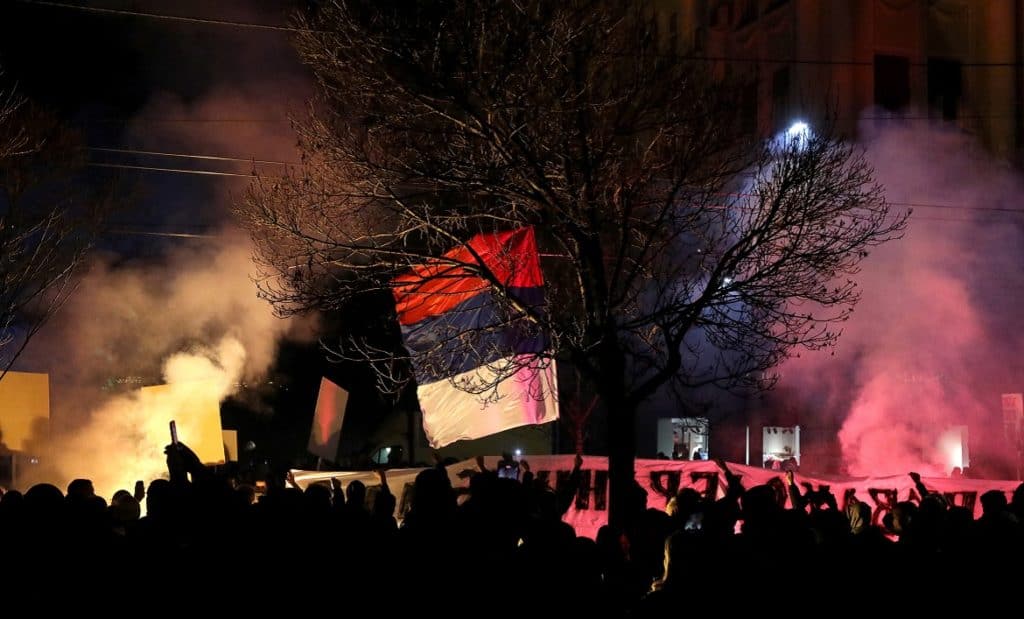By Javad Pasandideh
Otto von Bismarck, Chancellor of the Prussian and German Empire (1862 to 1890), warned that “Every wrong and idiotic decision in the Balkans may trigger a horrible war for all of Europe!” Subsequent events in Europe, the assassination of the Crown Prince of Austria-Hungary in Sarajevo by a radical Serbian patriot, on 28 June 1914, as well as successive misguided policies of leaders of European states, proved the truth of Bismarck’s prediction.

Currently, regardless of the major developments reported by news agencies, I believe that some events have been underestimated not only by the masses but also by some politicians around the world. Today many people are aware of some crisis issues such as the war in Ukraine, the women’s uprising and revolution in Iran, political protests against Benyamin Netanyahu’s return to Israel, etc. Other cases, however, have been forgotten or, in a more optimistic view, have been recognized as less crucial issues to be examined.
Few months ago, a large demonstration was organized in Belgrade to criticize the Serbian prime minister Ana Brnabić. Serbian demonstrators pointed out the country’s internal shortcomings and the prime minister’s inactive reaction to problems. After a while, a new demonstration was instead organized by Belgrade’s LGBT community in support of Ana Brnabić, first openly lesbian woman to receive government office in Serbia, for her successful policies. Brnabić’ opponents perceived the LGBT support for Serbia’s prime minister as a bitter response. As a result, in the days that followed, Belgrade witnessed some extensive demonstrations with a new topic, threats from pedophiles!
Many Belgrade residents blocked the streets to demand the resignation of Ana Brnabić, not so much because of her weakness in governing, but because she is a lesbian and her remaining in power, according to the protesters, could create “dangerous problems for our children and our national values”. Finally, the struggles in Serbia were resolved through the mediation of Serbia’s president, Aleksandar Vucic, who got both sides to agree on the country’s domestic and foreign policy, as well as obtaining the support of the Patriarch of the Orthodox Church of Serbia.
At the same time that several demonstrations were taking place in Serbia for and against the prime minister, the country was also trying to find a solution to border disputes with Kosovo in Metohija. The issue was the recognition of the rights of the Serbian population in Metohija. This case went through a period marked by serious events, some of which brought the two countries to the brink of conflict. Fortunately, the disputes were temporarily resolved on March 18, 2023, by the agreement on certain situations from both sides, particularly by Serbia.
As in many other examples, Western leaders have presented themselves here as protectors of peace, but the specific and ignored point here is that the Serbian government has accepted the situation with a flexible policy on Metohija. European leaders forgot the importance of Metohija to the Serbian nation. In fact, they did not understand or perhaps did not want to know that Metohija, in addition to having a Serbian population, was the place where Tsar Lazar, the historical and sacred figure of Serbia, was killed in the battle with the Ottoman Empire in Kosovo and his body was transferred to Metohija before being brought to Serbia. The European Union did not care that many of the Serbs’ Orthodox and historical monasteries are located in Metohija.
In fact, unlike the days of Slobodan Milošević’s Yugoslavia, the EU, Kosovo, Serbia, and even the entire Balkan region have been fortunate because there is now a different personality in Serbia’s government, President Vucic, who has prevented a new war or genocide from breaking out in the Western Balkans.
It is therefore possible that, following a change of power in Serbia and the arrival of radical leaders there, the Western Balkans will face a new and terrible crisis. Moreover, the onset of new conflicts in the Western Balkans will have the potential to link to confrontation in Eastern Europe, such as the war between Russians and Ukrainians. Indeed, if EU leaders today do not accept Serbia’s entry into the European Union as an important member, they will probably have to expect the rise of a new generation of far-right or even fascist leaders in this country.
Needless to say, a radical right-wing government in an orthodox country like Serbia will increasingly tighten relations with Russia, especially in the political and military spheres. A radical Serbia will not promise to commit to the conditions and principles that the EU and NATO consider for the country, especially if this type of Serbian government knows that it will be benefited by Russia’s assistance.
Ultimately, Russia, by absorbing Serbia, could create its own Orthodox Slavic triangle with Belarus and the new radical Serbia. For Vladimir Putin, the growing tensions between Serbia and the West could be an opportunity to take revenge for when the United States and NATO, taking advantage of the collapse of the Soviet Empire and weakness of Boris Yeltsin, bombed Belgrade and Serbian troops.
Author: Javad Pasandideh (Political analyst. Tehran-Iran)
(The views expressed in this article belong only to the author and do not necessarily reflect the views of World Geostrategic Insights).
Image Credit: Reuters







